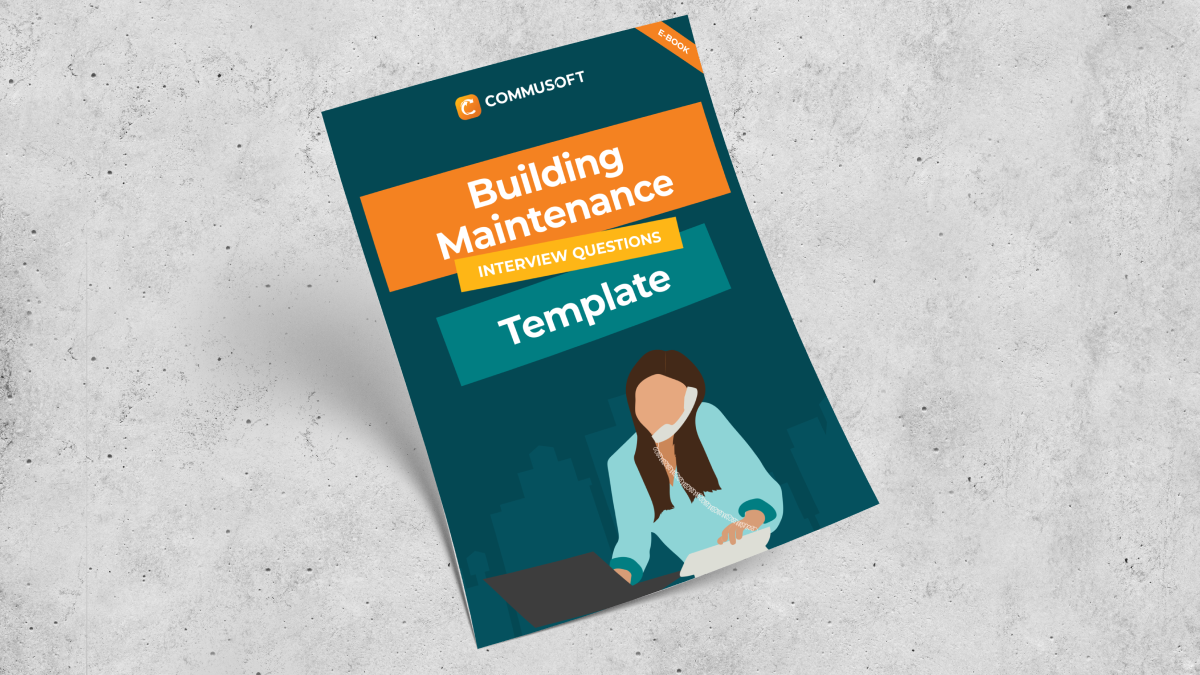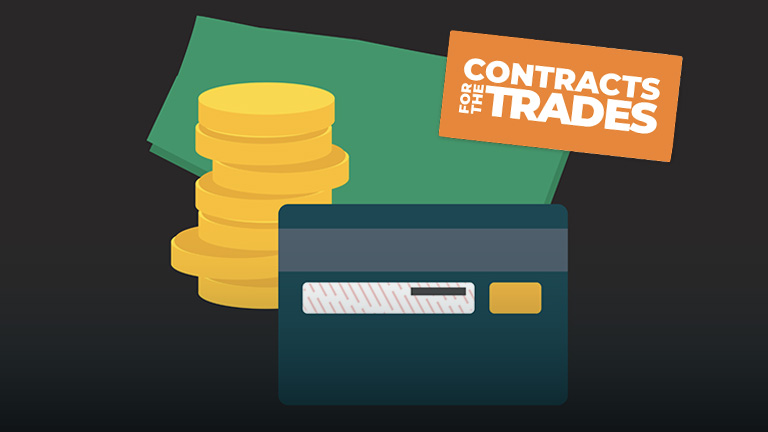How to Handle a Last Minute Cancellation for Field Service Jobs
May 9, 2023 | Read: 12 minutes

There are few things more satisfying than a fully booked calendar.
A consistent stream of work means a continual flow of revenue—which is what every business wants.
That is, until you get a call for a last-minute cancellation… then another… and another…
On the go? Have a listen!
Last-minute cancellations are, well, last minute—making it difficult to schedule jobs to fill the gaps they leave in the day. This means a lost opportunity for work, which all field service businesses want to avoid.
It’s a deflating experience and can quickly become a costly one for your business, too.
But are last-minute cancellations even avoidable? Not always (life happens) but there are ways to prevent them from becoming a regular drawback; we’ve listed four of them below!
Although you can’t always prevent customers from canceling, you can take steps to reduce the impact those last-minute cancellations will have on your business.
And we’re here to help you put a solid strategy in place, so read on!

The Importance of Addressing Last-Minute Cancellations
It’s tempting to treat last-minute cancellations one of two ways:
- Ignore them and go on about your day, or
- Take it out on the customer.
Neither of these is a healthy approach that’s gonna help your business grow.
They’re certainly an inconvenience and can cause anxiety even to the calmest of business owners, so the best way to handle them is to be prepared.
Good communication with your customers starts at the very first interaction: your website, usually. Make sure you have a clear list of Terms and Conditions listed there so that they’re aware of their rights and liabilities in case they need to cancel.
Furthermore, add a link to these to every confirmation or reminder email you exchange with them. This addresses the matter before they even get a job and saves you from having to deal with the excuse of “I had no idea!”.
What’s the Impact of Cancellations on Businesses and Customer Satisfaction?
Cancellations are inevitable, so it’s important that you prepare your business for them and minimize the negative impact.
There are several areas which can be affected by last-minute cancellations:
Cash Flow
A flexible cash flow means having money in the bank to cover all your business costs for a couple of months even if you don’t book a single job. This being said, many businesses don’t have such a steady income and oftentimes survive month-to-month.
Bad cash flow means they’re much more exposed to the negative impact of last-minute cancellations as this means they’ll either just break even at the end of the month—foregoing any profit margin—or might even operate at a loss.
Inventory
Keeping inventory is expensive in the first place, as you need to cover warehouse costs and assume the liability of parts expiring/getting damaged.
Ordering expensive inventory for jobs that get cancelled last minute can therefore have a big impact on your cash flow.
In this situation, it’s essential to take a deposit that can at least help you break even on these jobs even if they cancel.

Route Efficiency
The daily impact of last-minute cancellations is affecting your route optimization process.
Ideally, you’d either rely on an experienced office admin who knows the local areas or on a job scheduling software that can automatically generate the best routes for your technicians with a smart scheduling algorithm.
This saves you a lot in the long term when it comes to fuel costs and vehicle usage. Last-minute cancellations can seriously upset these and lead to additional costs, which you should plan for in advance.
Four Solutions to Help You Cover Cancellations
1. Automate Communications to Reduce Last Minute Cancellations
Let’s get to the root of why most last-minute cancellations happen: Your customers are people, and people forget things easily. It’s human nature (literally). That’s why we love reminders—and if you’re not already, you should be sending them.
Send a confirmation immediately after booking
The easy solution is sending confirmations and reminders at different intervals, ahead of the job. When a customer books a job with your field service business, be sure to confirm the appointment immediately. This will help customers remember the date and time of the job, plus appointment confirmation emails get a 79% acceptance rate.
Then, depending on how far out the service was booked, set up reminder messages. We recommend sending out at least three emails and/or text messages.
Send the confirmation for the appointment, a reminder at least two days before the job, and then another on the morning of the service.
These helpful nudges can actually reduce missed appointments by 10%!
Send multiple reminders before the appointment
Think about how businesses notify you every day. Have you recently ordered a package from Amazon? Don’t worry, they’ll send you a push when it arrives so it won’t be left on your doorstep overnight.
Or do you have an important email that’s been sitting in your inbox for the last three days? No stress, Gmail will notify you with a reminder to respond.
Some of us like these reminders so much that we even turn up the frequency on how often we get them.
So consider how your customers feel when they book a service with you two weeks in advance, get a vague appointment slot, but then hear nothing from you in the weeks leading up to the job, only to suddenly get an “on the way” text 30 minutes before the appointment.
They might be halfway to the grocery store or in the middle of a work meeting. Instinctively, they’ll cancel—and very last minute at that. It’s an inconvenience for you and them.
Speed up confirmations and reminders with automation software
However, if it seems like a lot of work for your team to stop what they’re doing every time a job is booked in to type out these messages, then you’re right: it is!
Remove tedious tasks like this by automating your alerts and notifications with software.
This way, you can reduce last-minute cancellations with minimal effort.
2. Create a Last Minute Cancellation Policy to Prevent No Shows
Nobody likes paying a cancellation fee, which is why it’s a good idea to have one if you’re struggling with no-shows. If you take payment in advance, a full refund isn’t really expected here.
But while a last-minute cancellation is an inconvenience to your business, your policy should be reasonable. If you try to charge customers $500 for canceling less than 48 hours in advance, it most likely is not going to bode well for business. So, what’s the happy medium?
Policies will range from business to business, but there are some must-haves you should include.
First and foremost, make your cancellation policy very apparent. There’s nothing worse than having something come up last minute, trying to cancel an appointment, and hearing for the first time there’s a penalty for such short notice.
How much should you charge for a last-minute cancellation fee?
Remember, these are still your customers and the point is not to punish them. You should always aim to create great customer journeys, so be as transparent as possible.
If they schedule a service over the phone, make sure you and your team let them know how much notice they need to give to cancel. And include it in your confirmation and reminder messages as well.
Then, consider the fee you will charge for a last-minute cancellation. How much you ask for might be dependent on the type of work you do. If the majority of your jobs are quick maintenance and repair services, the number might be lower.
If you tend to do larger installation projects, you might want a larger fee. 10% might be appropriate for the service, while 50% can be considered especially for jobs where you need to order parts.
When should you charge a cancellation fee?
How far in advance they need to give notice is up to you—but we wouldn’t recommend requiring more than 48 hours. When deciding on a timeframe, think about how much time you’ll need to reach out to other customers to see if they’re available for an earlier appointment.

Again, be reasonable in what you charge and mindful of the situation. If your customer genuinely has a last-minute emergency, consider waiving the cancellation penalty or crediting it to them when they rebook.
The goal should always be to maintain customer relationships, not burn bridges.
With that being said…
3. Expect the Unexpected! Have Communication Templates at the Ready
Even with all the right measures in place to prevent a last-minute cancellation, no-shows happen. But just because a job gets canceled doesn’t mean you can’t get another one scheduled in its place. So when all else fails, have a plan ready.
Getting a cancellation call an hour before a scheduled service can feel both disheartening and overwhelming. Maybe you had two hours blocked out for the job—so now what?
We recommend creating a list of customers who need more immediate services and using this as a waiting list.
You probably have clients call in to get a quote or maintenance job scheduled ASAP. But when things are busy, you may not be able to fit them into the schedule immediately.
In cases like this, ask them if they would be open to being contacted if someone else cancels. It can be a win-win scenario. You don’t need to scramble when you get a last-minute cancellation call, and they potentially get to be serviced sooner.
An organized customer database will help you manage cancellations better
When reaching out to customers on this list, always try a phone call first. In the case that you can’t reach them by phone, be sure to send them an email or text message as well. Using a customer database software can make it easier for your team to organize newly freed-up appointment slots.
Since you are trying to schedule these appointments in a short period of time, automation will be your friend. Have ready-to-go templates with personalization tags—this way your team doesn’t have to spend a long time customizing each message.
We recommend keeping the message brief and clear. Explain that an appointment has opened up and ask if they are available to be serviced.
If they are, great! Add the job to the calendar.
If not, consult the list again and move on to your next customer.
Being proactive in these situations is key. Last-minute cancellations can be out of your control, so focus on what you can control. Make sure you have a solid plan in place to keep your schedule full. .
4. How Do You Handle Your Own Last-Minute Cancellations?
Take a step back and look inward – just like your customers, you and your field service team are human.
Things happen, and there might be times when you need to cancel at the last minute despite your best efforts not to. It can be a difficult situation, but one you should always be prepared for.
Some reasons for a business needing to cancel last minute can be:
- A scheduling error – like double booking.
- If the parts needed for the job are out of stock or haven’t arrived.
- The previous job took longer than expected and kept a technician busy with no one to replace them.
- General understaffing or an employee is out sick.
No matter the case, you’ll need to handle the situation professionally to ensure your customer doesn’t turn to the competition because of a bad past experience.
It’s best to try and get in touch with the customer by phone first. This way, you can offer a more comprehensive explanation and a genuine apology. If you aren’t able to get in touch this way, though, leave a brief message and make sure to tell them you’ll be following up with an email.
Send your follow-up email as soon as possible, as they will now be expecting to hear from you. Our best advice is to make it clear that this is an unusual situation and not something that regularly happens.
Be the bigger person and take responsibility for the cancellation, even if it’s due to factors outside of your control.
Along with your apology for the inconvenience, it might be a good idea to include a small discount as well. It’s important to demonstrate that you value them as a customer and to really make the effort to keep their business.
Offering a discount may also encourage them to rebook with you, and not turn to the competition.
Communication is Essential to Business Growth
In a perfect world, no one would cancel at the last minute.
And while that unfortunately is not the case, the good news is there are plenty of things you can do to reduce your no-shows. Always confirm appointments and send follow-up reminders for them, and consider putting in place a transparent cancellation policy.
When those methods fail, have a strategy to reach out to customers who are open to taking those last-minute appointments. Keep an organized list and have message templates that are ready to be sent out at any minute.
The faster you act, the more likely you are to keep your calendar booked.
Automation can help you manage these situations easily, with customer database software that let you reach out to the best people right away, job scheduling software that re-routes your technicians on the spot, and more!
To get started and see how improving communication can help, download your free toolkit:









